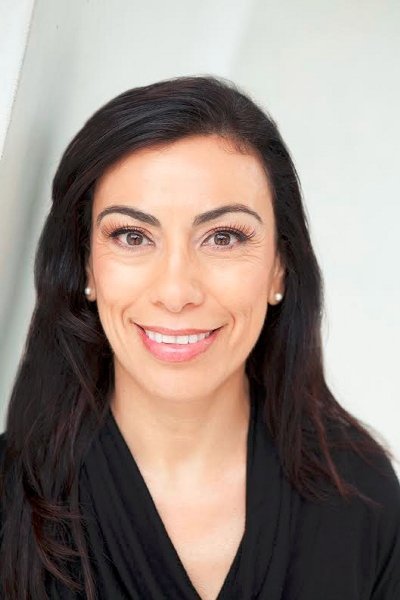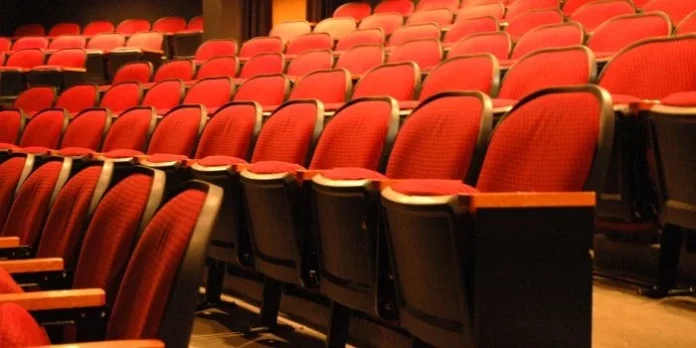It has taken Vancouver playwright Carmen Aguirre nearly sixteen years to see a production of The Refugee Hotel performed in her hometown.
“I wrote it at the turn of the millennium and I’ve been trying to get it produced in Vancouver ever since,” says Aguirre. “Finally, Studio 58 stepped up to produce it.”
Set in a rundown West End Vancouver hotel in 1974, only months after the start of Pinochet’s infamous regime in Chile, The Refugee Hotel is an autobiographical story about eight Chilean exiles struggling with the effects of fleeing their homeland.
“This is not an immigrant story, but a play about exile,” explains Aguirre who escaped Chile for Vancouver with her family at the age of six. “Immigration is about reinventing yourself in a new country; exile is about the triumphant return to your home country.”
“This is not an immigrant story, but a play about exile.” – playwright Carmen Aguirre
Describing it as dark comedy, the story may be autobiographical, but Aguirre also drew from the experience of others and from what she refers to as “the mythology surrounding Chilean refugees”.
The play’s comedy comes from a need to offset the serious material.
“Chileans have a very dark sense of humour,” says Aguirre. “There is some pretty dark material in the play and it was a good way to balance it out to have some comedy.”
Originally to receive its world premiere at Toronto’s Factory Theatre in 2004, the production never took place due to a controversy surrounding the make-up of the cast.
“It seemed like they were going to cast the play with an all-white cast, and I ended up pulling it,” says Aguirre whose play was written for eight Latino actors.
It would be another five years before The Refugee Hotel would actually see its premiere in a co-production between the now defunct Alameda Theatre and Theatre Passe Muraille in Toronto. With a mandate to provide opportunities for Latino actors to play Latino characters, Aguirre’s play was tailor made for Alameda, the Latin-Canadian theatre company.
Getting the play, which takes place in Vancouver, produced in her hometown though has not been easy. Aguirre does admit some of the baggage from the Factory Theatre production may have contributed. It is also not easy to convince professional theatre companies to produce a play with such a large cast.
“I suppose it was hard to get it produced because people felt afraid if it wasn’t done the way I wanted I would pull the show,” admits Aguirre. “But it was also difficult to get it produced with twelve people in the cast”.
With the large cast it requires, the Langara College Studio 58 production made sense. Aguirre jumped at the opportunity to not only have her play produced at her alma mater, but to direct as well.
The Studio 58 production does come with a trade-off though, as Aguirre’s play will see many of her Latino characters played by white actors. Working with the current Studio 58 class means the cast consists of two biracial and nine Caucasian actors.
In the context of a school production, Aguirre doesn’t see this as a problem.

“Most of the students in this production are white, but we have spent a lot of time doing research, and research equals empathy,” says Aguirre. “This is an extraordinary cast coming to table with empathy, and very aware of the issues.”
On her radar for a number of years, The Refugee Hotel became more immediate for Studio 58’s artistic director Kathryn Shaw given the Syrian refugee crisis and Canada’s response. Like Aguirre, she felt it would be a great learning experience for the students.
“I asked Carmen straight up whether it was appropriate for non-Chileans to take on these powerful roles or would it be viewed as cultural appropriation,” says Shaw in a statement. “Carmen expressed the view that since the play would be produced in a school setting, it was appropriate. As she is Chilean, the author and director of the play and since she has been active in the community regarding matters of diversity, her assessment led me to include this powerful play in our season.”
Aguirre insists the students also understand being able to perform these characters is not just a learning opportunity, but a privilege as well.
“They know that if this was a professional production it would not be appropriate for them to play these roles,” says Aguirre. “It is an immense opportunity for them to step into characters they won’t be able to play in their professional lives.”
Aguirre justifies allowing a non-Latino cast within a school setting, for the same reasons Lin-Manuel Miranda has given his blessing to school productions with a non-Latino cast of In The Heights. While Aguirre and Miranda agree that authorial intent must take precedence in professional productions, school productions are an opportunity for students to be able to experiment.
“Authorial intent always wins in a professional setting,” says Aguirre. “In school though there is an opportunity for the student actors to learn from this experience. This cast has told me they feel very honoured and privileged to play these roles, and understand that in a professional world it would be unfair for them to play these characters.”
The Refugee Hotel plays Langara College’s Studio 58 (100 W 49th Ave, Vancouver) March 23 – April 9. Tickets are available online at Tickets Tonight.

